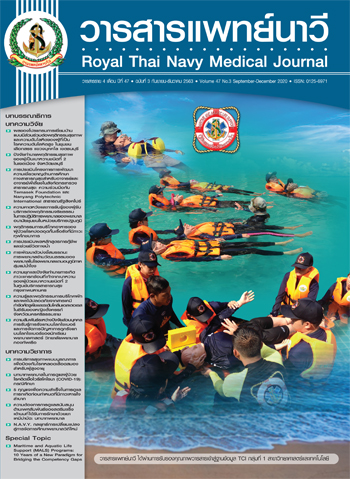The Evaluation of the Expertise Development for Public Health Education Project of Faculty Members and Public Health Mentors: the Cooperation of Ministry of Public Health Thailand, Temasek Foundation and Nanyang Polytechnic International Republic of Singapore
Main Article Content
Abstract
The development of faculty members and mentors’ expertise is important and challenging as it develops personnel to improve human resources in organization, including nurses and public health personnel who provide health care services to public health organization in response to the health service system at all levels of Thailand and keep up with the changes of the world society. This evaluation research used a survey research method. The aim of this study was to evaluate the development of public health education expertise for faculty members and mentors in the Ministry of Public Health using CIPPI model. Purposive sampling recruited 132 faculty members and mentors. The research questionnaire was developed by researchers according to the CIPPI model which was divided into two parts: 1) General Information, and 2) Project evaluation based on CIPPI model. The content validity index was proved at 0.75 through 3 expert inspections. The Cronbach’s alpha coefficient was used to test the reliability at 0.94. Data were analyzed using descriptive statistics.
The results showed that the overall and all five domains which composed of context, input, process, product, and impact were at very good level (more than 80 percent). The average score of the overall project evaluation was 85.92. The context domain was the highest score at 88.86. On the other hand, the process domain was the lowest score at 83.15. The training project which composed of preparation, training, implementation, and evaluation was effective to promote the proficiency of the participants. Moreover, this pattern of training can be used to perform and develop their duties in the real life situation.
Article Details

This work is licensed under a Creative Commons Attribution-NonCommercial-NoDerivatives 4.0 International License.
References
The Office of National Economic and Social Development Council. National economic and social development plan No. 12. [Internet]. [cited 2019 January 16]. Available from: https://www.nesdc.go.th/ewt_dl_link.php?nid=6422. (in Thai).
Sararatana W. New education paradigm: case of perspective 21st century education. Bangkok: Tipvisuth; 2013. (in Thai).
The Office Promotes the Society of Learning and Quality of Youth. The 21st century of learning ways for disciplines. [Internet]. [cited 2019 January 16]. Available from: http://www.youtube.com/watch?v=Pr_bG72nBpk. (in Thai).
Trilling B, Fadel C. 21st century skills: learning for life in our times. [Internet]. [cited 2019 January 21]. Available from: https://epdf.pub/21st-century-skills-learning-for-life-in-our-times.html
National Education Act B.E. 2550. National education act. [Internet]. [cited 2019 January 22]. Available from: http://kormor.obec.go.th/act/act081.pdf (in Thai).
Sararatana W. Research executive education: concepts and case studies. 2nd ed. Bangkok: Aksarapipat; 2011. (in Thai).
Stufflebeam DL. Foundational models for 21st century program evaluation. In: Stufflebeam DL, Madaus GF, Kellaghan T, editors. Evaluation models. 2nd ed. Netherlands: Springer; 2001.
Stufflebeam DL. The CIPP model for evaluation. In: International seminar on new directions in educational research, measurement and evaluation: The 16th Thailand education research, measurement and evaluation get-together, 17-18 January, 2008. Phitsanulok: Naresuan University; 2008. p. 9-23.
Sereewatana W. A systemic evaluation of world class standard school project. [Doctoral Dissertation, Faculty of Education]. Khon Kean University. 2012. (in Thai).
Amatayakul A, Phothong C, Chamnansua P, Pragodpol P, Sukosit T, Hanbenjapong C, et al. The evaluation of the project on development of excellent center in health technology of colleges under the jurisdiction of Praboromarajchanok Institute for Health Workforce Development. Journal of Health Science 2017;26(2):610-20. (in Thai).
Siripatthanagulkajorn S. The 21st century learning. The NAS Magazine King Mongkut’s University of Technology Thonburi 2012;2(1):18-20. (in Thai).
Nadler L. Corporate human resources development. New York: American training and Development; 1980.
Sriviboon C. The principle of human resource development. Bangkok: Dr. Petch Publisher; 2014. (in Thai).
Inyai C. Project evaluation. Bangkok: Chulalongkorn University Printing House; 2010. (in Thai).
Viboonsri YR. Project evaluation: concepts and practices. 6th ed. Bangkok: Chulalongkorn University Printing House; 2010. (in Thai).
Sakcharoen P. Adult learning theory and self-directed learning concept: learning process for promoting lifelong learning. Journal of the Royal Thai Army Nurses 2015;16(1):8-13. (in Thai).
Wongthongdee S. Human development. Bangkok: Chulalongkorn University Printing House; 2013. (in Thai).


